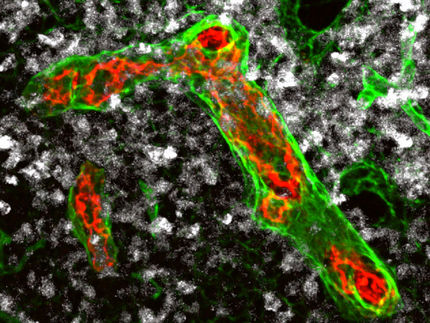First medicine for rare blood cancer
EMA recommends Imbruvica for the treatment of Waldenstrӧm’s macroglobulinaemia
The European Medicines Agency (EMA) has recommended extending the use of Imbruvica (ibrutinib) to include the treatment of patients with Waldenstrӧm’s macroglobulinaemia, a rare blood cell cancer. Imbruvica is the first medicine that is recommended for this disease.
The medicine is indicated for adults who have received at least one prior therapy or as a first line treatment for patients unsuitable for chemo-immunotherapy.
Imbruvica was first authorised in the European Union in October 2014 for the treatment of two other types of blood cancer: chronic lymphocytic leukaemia and mantle cell lymphoma.
Waldenstrӧm’s macroglobulinaemia, a type of non-Hodgkin lymphoma, is characterised by an excess of abnormal white blood cells, called B lymphocytes and plasma cells, in the bone marrow and sometimes in other organs. These abnormal cells produce large amounts of an immunoglobulin called IgM, which can make the blood thicker than normal. This cancer usually begins in people over 60 years of age. Five years after diagnosis, between 36% and 87% of patients are still alive, depending on their individual risk factors.
Imbruvica represents a novel strategy in the treatment of malignancies involving B lymphocytes. The active substance contained in Imbruvica, ibrutinib, works by blocking an enzyme called Bruton’s tyrosine kinase (Btk), which has a key role in the survival of B lymphocytes and their migration to the organs where these cells normally divide. By blocking Btk, ibrutinib decreases survival and migration of B lymphocytes, thereby delaying the progression of the cancer.
The recommendation from EMA’s Committee for Medicinal Products for Human Use (CHMP) is based on the results of a phase 2 study in 63 patients with previously treated Waldenstrӧm’s macroglobulinaemia. Around 90% of the patients treated with Imbruvica responded positively to the treatment and approximately 80% of patients were alive without disease progression after 18 months.
The adverse events reported during the clinical trial were similar to those observed in the already approved indications of Imbruvica. They include events affecting the blood and bone marrow such as neutropenia and thrombocytopenia.
Because Waldenstrӧm’s macroglobulinaemia (also known as lymphoplasmacytic lymphoma) is rare, Imbruvica received an orphan designation for this indication from the Committee for Orphan Medicinal Products (COMP) in 2014. Orphan designation and the associated incentives such as fee reductions for scientific advice are among the Agency’s most important instruments to encourage the development of medicines for patients with rare diseases.
Other news from the department research and development

Get the life science industry in your inbox
By submitting this form you agree that LUMITOS AG will send you the newsletter(s) selected above by email. Your data will not be passed on to third parties. Your data will be stored and processed in accordance with our data protection regulations. LUMITOS may contact you by email for the purpose of advertising or market and opinion surveys. You can revoke your consent at any time without giving reasons to LUMITOS AG, Ernst-Augustin-Str. 2, 12489 Berlin, Germany or by e-mail at revoke@lumitos.com with effect for the future. In addition, each email contains a link to unsubscribe from the corresponding newsletter.





















































